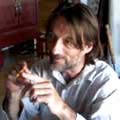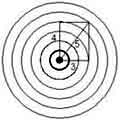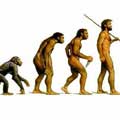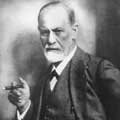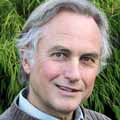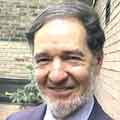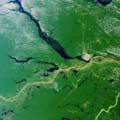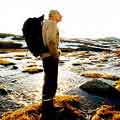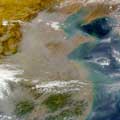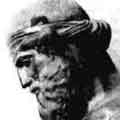Utopia
On Truth, Reality & the Evolution of Utopia
Utopia as the Evolution of Human Culture & Society
Founded on Truth & Reality
Only the individual can think, and thereby create new values for society, nay, even set up new moral standards to which the life of the community conforms. ... The ideals which have lighted my way, and time after time have given me new courage to face life cheerfully, have been Kindness, Beauty and Truth.(Albert Einstein, 1954)
Communities tend to be guided less than individuals
by conscience and a sense of responsibility. How much misery does this fact
cause mankind! It is the source of wars and every kind of oppression, which
fill the earth with pain, sighs and bitterness.
(Albert Einstein, 1934)
A human being is part of the whole called by us universe, a part limited in time and space. We experience ourselves, our thoughts and feelings as something separate from the rest. A kind of optical delusion of consciousness. This delusion is a kind of prison for us, restricting us to our personal desires and to affection for a few persons nearest to us. Our task must be to free ourselves from the prison by widening our circle of compassion to embrace all living creatures and the whole of nature in its beauty. The true value of a human being is determined by the measure and the sense in which they have obtained liberation from the self. We shall require a substantially new manner of thinking if humanity is to survive. (Albert Einstein, 1954)
The only immediate utility of all sciences,
is to teach us, how to control and regulate future events by their causes.
... He sees such a desperate rapaciousness prevail; such a disregard to
equity, such contempt of order, such stupid blindness to future consequences,
as must immediately have the most tragical conclusion, and most terminate
in destruction to the greater number, and in a total dissolution of society
to the rest. ... the voice of nature and experience seems plainly to oppose
the selfish theory. (David Hume)
For a solitary animal egoism is a virtue that tends to preserve and improve the species: in any kind of community it becomes a destructive vice. An animal that embarks on forming states without greatly restricting egoism will perish. ... We must not wait for things to come, believing that they are decided by irrescindable destiny. If we want it, we must do something about it. (Erwin Schrodinger)
 Introduction to Utopia
Introduction to Utopia
HI Everyone,
I have just written up a short essay on Politics, Market Economics and Utopia that I hope you will read. I think it is important because humanity is currently creating 'Hell on Earth' by destroying Nature on our dear little home that we call Earth. As Thomas Hobbes wrote;
Hell is truth seen too Late!
The two truths that are obvious and yet we are blind to them.
1. We have ignored the most simple obvious explanation of reality - which clearly works.
2. We are rapidly destroying Nature - from which we evolved and depend upon for our future survival.
I realise that the 'Utopian Ideal' is seen as fanciful. But this just depends on how you define 'Utopia'. I define utopia as the evolution of human society founded on true knowledge of reality. i.e. Without truth (which ultimately comes from reality) humanity can not be wise (just think about our current world - it is living proof of this!).
As Plato wrote;
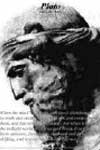
When the mind's eye rests on objects illuminated
by truth and reality, it understands and comprehends them,
and functions intelligently; but when it turns to the twilight world of
change and decay, it can only form opinions, its vision is confused and
its beliefs shifting, and it seems to lack intelligence. (Plato,
Republic)
And isn't it a bad thing to be deceived about the truth, and a good thing
to know what the truth is? For I assume that by knowing the truth you mean
knowing things as they really are. (Plato)
The philosopher is in love with truth, that is, not with the changing world
of sensation, which is the object of opinion, but with the unchanging reality
which is the object of knowledge. (Plato)
Truthfulness. He will never willingly tolerate an untruth, but will hate
it as much as he loves truth. ... And is there anything more closely connected
with wisdom than truth? (Plato)
What is at issue is the conversion of the mind from the twilight of error
to the truth, that climb up into the real world which we shall call true
philosophy. (Plato)
It is now obvious that the discrete and separate particle conception of matter is wrong. The Wave Structure of Matter (WSM) explains the interconnection of matter in Space and the dynamic unity of reality (where Space exists as a wave medium). Thus humans are intimately connected to all other matter in the universe - by destroying Nature we are destroying ourselves. Think about it! We are talking about the lives of our children.
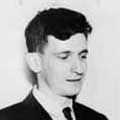 The
notion that all these fragments is separately existent is evidently an illusion,
and this illusion cannot do other than lead to endless conflict and confusion.
Indeed, the attempt to live according to the notion that the fragments are
really separate is, in essence, what has led to the growing series of extremely
urgent crises that is confronting us today. Thus, as is now well known,
this way of life has brought about pollution, destruction of the balance
of nature, over-population, world-wide economic and political disorder and
the creation of an overall environment that is neither physically nor mentally
healthy for most of the people who live in it. Individually there has developed
a widespread feeling of helplessness and despair, in the face of what seems
to be an overwhelming mass of disparate social forces, going beyond the
control and even the comprehension of the human beings who are caught up
in it. (David Bohm, Wholeness and the Implicate Order,
1980)
The
notion that all these fragments is separately existent is evidently an illusion,
and this illusion cannot do other than lead to endless conflict and confusion.
Indeed, the attempt to live according to the notion that the fragments are
really separate is, in essence, what has led to the growing series of extremely
urgent crises that is confronting us today. Thus, as is now well known,
this way of life has brought about pollution, destruction of the balance
of nature, over-population, world-wide economic and political disorder and
the creation of an overall environment that is neither physically nor mentally
healthy for most of the people who live in it. Individually there has developed
a widespread feeling of helplessness and despair, in the face of what seems
to be an overwhelming mass of disparate social forces, going beyond the
control and even the comprehension of the human beings who are caught up
in it. (David Bohm, Wholeness and the Implicate Order,
1980)
Quotes on Utopia, Humanity, Nature, Truth, Reality & Society
 (Kuhn,
1962) The historian of science may be tempted to exclaim that when paradigms
change, the world itself changes with them.
(Kuhn,
1962) The historian of science may be tempted to exclaim that when paradigms
change, the world itself changes with them.
 (William James) The greatest discovery of my generation
is that a human being can alter his life by altering his attitude.
(William James) The greatest discovery of my generation
is that a human being can alter his life by altering his attitude.
 (Hume,
1777) And though the philosopher may live remote from business, the genius
of philosophy, if carefully cultivated by several, must gradually diffuse
itself throughout the whole society, and bestow a similar correctness on
every art and calling.
(Hume,
1777) And though the philosopher may live remote from business, the genius
of philosophy, if carefully cultivated by several, must gradually diffuse
itself throughout the whole society, and bestow a similar correctness on
every art and calling.
The only immediate utility of all sciences, is to teach us,
how to control and regulate future events by their causes.
... He sees such a desperate rapaciousness prevail; such a disregard to
equity, such contempt of order, such stupid blindness to future consequences,
as must immediately have the most tragical conclusion, and most terminate
in destruction to the greater number, and in a total dissolution of society
to the rest. ... the voice of nature and experience seems plainly to oppose
the selfish theory. (David Hume)
 (Gandhi)
All our philosophy is dry as dust if it is not immediately translated into
some act of living service.
(Gandhi)
All our philosophy is dry as dust if it is not immediately translated into
some act of living service.
 (Einstein,
1954) We shall require a substantially new manner of thinking if humanity
is to survive.
(Einstein,
1954) We shall require a substantially new manner of thinking if humanity
is to survive.
We must not conceal from ourselves that no improvement in the present depressing situation is possible without a severe struggle; for the handful of those who are really determined to do something is minute in comparison with the mass of the lukewarm and the misguided. And those who have an interest in keeping the machinery of war going are a very powerful body; they will stop at nothing to make public opinion subservient to their murderous ends. (Albert Einstein, 1954)
The population of the civilized countries is extremely dense as compared with former times; Europe today contains about three times as many people as it did a hundred years ago. But the number of leading personalities has decreased out of all proportion. Only a few people are known to the masses as individuals, through their creative achievements. Organisation has to some extent taken the place of leading personalities, particularly in the technical sphere, but also to a very perceptible extent in the scientific. (Einstein, 1954)
In two weeks the sheeplike masses of any country can be worked up by the newspapers into such a state of excited fury that men are prepared to put on uniforms and kill and be killed, for the sake of the sordid ends of a few interested parties. Compulsory military service seems to me the most disgraceful symptom of that deficiency in personal dignity from which civilized mankind is suffering today. (Einstein, 1954)
 (Popper,
1975) In my opinion, the greatest scandal of philosophy is that, while all
around us the world of nature perishes - and not the world of nature alone
- philosophers continue to talk, sometimes cleverly and sometimes not, about
the question of whether this world exists.
(Popper,
1975) In my opinion, the greatest scandal of philosophy is that, while all
around us the world of nature perishes - and not the world of nature alone
- philosophers continue to talk, sometimes cleverly and sometimes not, about
the question of whether this world exists.
If a theory corresponds to the facts but does not cohere with some earlier
knowledge, then this earlier knowledge should be discarded.
 Merely human opinions become accepted when derived from ancient beliefs,
and are taken on authority and trust like religion or law! We parrot whatever
opinions are commonly held, accepting them, as truths, with all the paraphernalia
of supporting arguments and proofs, as though they were something firm and
solid; nobody tries to shake them; nobody tries to refute them. On the contrary,
everybody vies with each other to plaster over the cracks and prop up received
beliefs with all his powers of reason- a supple instrument which can be
turned on the lathe into any shape at all. Thus the world is pickled with
stupidity and brimming over with lies. (de Montaigne, 1592)
Merely human opinions become accepted when derived from ancient beliefs,
and are taken on authority and trust like religion or law! We parrot whatever
opinions are commonly held, accepting them, as truths, with all the paraphernalia
of supporting arguments and proofs, as though they were something firm and
solid; nobody tries to shake them; nobody tries to refute them. On the contrary,
everybody vies with each other to plaster over the cracks and prop up received
beliefs with all his powers of reason- a supple instrument which can be
turned on the lathe into any shape at all. Thus the world is pickled with
stupidity and brimming over with lies. (de Montaigne, 1592)
Knowledge is a very weighty thing: they sink beneath it. Their mental apparatus has not enough energy nor skill to display the noble material and to apportion its strength, to exploit it and make it help them. Knowledge can lodge only in a powerful nature: and that is very rare. Feeble minds, said Socrates, corrupt the dignity of philosophy when they handle it; she appears to be useless and defective when sheathed in a bad covering. (de Montaigne, 1592)
 The ordinary man and woman live in an asphyxiating smog of opinions foisted
on them by society. They lose all independence of judgement and all freedom
of action. They see themselves increasingly as limited special functions,
as parts of a machine, with neither need nor right to perform any other
than their role in the economic structure of society. The civic sense becomes
atrophied. It is the job of the police to prevent crimes, not yours and
mine; it is the job of the town councilor to run the town, not yours and
mine; it is the job of the underprivileged to fight for their rights, not
yours and mine. Thus more and more live in cities, and yet more and more
become decitizenised. What began in the suburbs reaches right to the city's
heart. (Fowles, The Aristos, 1964)
The ordinary man and woman live in an asphyxiating smog of opinions foisted
on them by society. They lose all independence of judgement and all freedom
of action. They see themselves increasingly as limited special functions,
as parts of a machine, with neither need nor right to perform any other
than their role in the economic structure of society. The civic sense becomes
atrophied. It is the job of the police to prevent crimes, not yours and
mine; it is the job of the town councilor to run the town, not yours and
mine; it is the job of the underprivileged to fight for their rights, not
yours and mine. Thus more and more live in cities, and yet more and more
become decitizenised. What began in the suburbs reaches right to the city's
heart. (Fowles, The Aristos, 1964)
 For a solitary animal egoism is a virtue that tends to preserve and improve
the species: in any kind of community it becomes a destructive vice. An
animal that embarks on forming states without greatly restricting egoism
will perish.
For a solitary animal egoism is a virtue that tends to preserve and improve
the species: in any kind of community it becomes a destructive vice. An
animal that embarks on forming states without greatly restricting egoism
will perish.
.. We must not wait for things to come, believing that they are decided
by irrescindable destiny. If we want it, we must do something about it.
(Erwin Schrodinger)
..we need to see nature as the true capital on which our lives and economy depend. And if we learn to value nature, our real wealth, we will take better care of it. Our economic system works for no one, except maybe the one percent at the very top. Our system wastes the environment. It wastes people. And it's very, very expensive. We need a radical change in how we relate to resources and people and the environment. (Hawken, The Ecology of Commerce)
 ..this power of conscious choice is a vital human endowment. It allows meaning
to enter one's life, since one can decide on the course one's life should
best take. It ensures one is not impelled down instinctual roads of action,
but can search out and adopt a new solution to any dilemma. It permits artistic
creativity and the opening up of new styles of life, and it even permits
progress to human enlightenment in the Buddhist sense. (Robin Cooper,
The Evolving Mind)
..this power of conscious choice is a vital human endowment. It allows meaning
to enter one's life, since one can decide on the course one's life should
best take. It ensures one is not impelled down instinctual roads of action,
but can search out and adopt a new solution to any dilemma. It permits artistic
creativity and the opening up of new styles of life, and it even permits
progress to human enlightenment in the Buddhist sense. (Robin Cooper,
The Evolving Mind)
Beauty is truth, truth is beauty (Keats)
This truth is to be lived, it is not merely pronounced with the mouth...
(Hui Neng)
Great truths do not take hold of the hearts of the masses. And now, as
all the world is in error, how shall I, though I know the true path, how
shall I guide? If I know that I cannot succeed and yet try to force success,
this would be but another source of error. Better then to desist and strive
no more. But if I do not strive, who will? (Chuang Tzu)
 The philosophers have merely interpreted the world in various ways; the
point, however, is to change it. (Karl Marx)
The philosophers have merely interpreted the world in various ways; the
point, however, is to change it. (Karl Marx)
 Uncertainty, in the presence of vivid hopes and fears, is painful, but must
be endured if we wish to live without the support of comforting fairy tales.
It is not good either to forget the questions philosophy asks, or to persuade
ourselves we have found indubitable answers to them. To teach how to live
without certainty, and yet without being paralysed by hesitation, is perhaps
the chief thing that philosophy, in our age, can do for those who study
it. ... Ever since men became capable of free speculation, their actions,
in innumerable important respects, have depended upon their theories as
to the world and human life, as to what is good and what is evil. This is
true in the present day as at any former time. To understand an age or a
nation, we must understand its philosophy, and to understand its philosophy
we must ourselves be in some degree philosophers. There is here a reciprocal
causation: the circumstances of men's lives do much to determine their philosophy,
but, conversely, their philosophy does much to determine their circumstances.
(Bertrand Russell)
Uncertainty, in the presence of vivid hopes and fears, is painful, but must
be endured if we wish to live without the support of comforting fairy tales.
It is not good either to forget the questions philosophy asks, or to persuade
ourselves we have found indubitable answers to them. To teach how to live
without certainty, and yet without being paralysed by hesitation, is perhaps
the chief thing that philosophy, in our age, can do for those who study
it. ... Ever since men became capable of free speculation, their actions,
in innumerable important respects, have depended upon their theories as
to the world and human life, as to what is good and what is evil. This is
true in the present day as at any former time. To understand an age or a
nation, we must understand its philosophy, and to understand its philosophy
we must ourselves be in some degree philosophers. There is here a reciprocal
causation: the circumstances of men's lives do much to determine their philosophy,
but, conversely, their philosophy does much to determine their circumstances.
(Bertrand Russell)
We have to treat others as part of who we are, rather than as a ‘them’ with whom we are in constant competition. (Robert Bellah)
The crisis that threatens our planet, whether seen from its military, ecological, or social aspect, derives from a dysfunctional and pathological sense of self. It derives from a mistake about our place in the order of things. It is a delusion that the self is separate and fragile that we must delineate and defend its boundaries, that it is so small and so needy that we must endlessly acquire and endlessly consume, and that it is so aloof that as individuals, corporations, nation-states, or species, we can be immune to what we do to other beings. ..This view of human nature is not new. Many have felt the imperative to extend self-interest to embrace the whole. (Joanna Macy, World as Lover World as Self)
 He who has seen deeply into the world knows what wisdom there is in the
fact that men are superficial. It is their instinct for preservation which
teaches them to be fickle, light and false. (Nietzsche,
1886)
He who has seen deeply into the world knows what wisdom there is in the
fact that men are superficial. It is their instinct for preservation which
teaches them to be fickle, light and false. (Nietzsche,
1886)
Madness is something rare in individuals- but in groups, parties, peoples, ages it is the rule. (Nietzsche, 1886)
Inasmuch as ever since there have been human beings there have also been human herds (family groups, communities, tribes, nations, states, churches) and always very many who obey compared with the very small number of those who command - considering, that is to say, that hitherto nothing has been practiced and cultivated among men better or longer than obedience, it is fair to suppose that as a rule a need for it is by now innate as a kind of formal conscience which commands: 'thou shalt unconditionally do this, unconditionally not do that', in short 'thou shalt'. This need seeks to be satisfied and to fill out its form with a content; in doing so it grasps about wildly, according to the degree of its strength, impatience and tension, with little discrimination, as a crude appetite, and accepts whatever any commander - parent, teacher, law, class, prejudice, public opinion - shouts in its ears. The strange narrowness of human evolution, its hesitations, its delays, its frequent retrogressions and rotations, are due to the fact that the herd instinct of obedience has been inherited best and at the expense of the art of commanding. (Nietzsche, 1886)
Every serious student of the subject knows that the stability of a civilisation depends finally on the wisdom with which it distributes its wealth and allots its burdens of labour, and on the veracity of the instruction it provides for its children. We do not distribute the wealth at all: we throw it into the streets to be scrambled for by the strongest and the greediest who will stoop to such scrambling, after handing the lion’s share to the professional robbers politely called owners. We cram our children with lies, and punish anyone who tries to enlighten them. Our remedies for the consequences of our folly are tariffs, inflation, wars, vivisections and inoculations – vengeances, violences, black magic. (George Bernard Shaw)
On the Evolution of Nature & Culture
Human, Society, Ecology, Life, The Environment & Universe
Help Humanity
"You must be the change you wish to see in the world."
(Mohandas Gandhi)
 "When forced to summarize the general theory of relativity in one sentence:
Time and space and gravitation have no separate existence from matter. ... Physical objects are not in space, but these objects are spatially extended. In this way the concept 'empty space' loses its meaning. ... The particle can only appear as a limited region in space in which
the field strength or the energy density are particularly high. ...
"When forced to summarize the general theory of relativity in one sentence:
Time and space and gravitation have no separate existence from matter. ... Physical objects are not in space, but these objects are spatially extended. In this way the concept 'empty space' loses its meaning. ... The particle can only appear as a limited region in space in which
the field strength or the energy density are particularly high. ...
The free, unhampered exchange of ideas and scientific conclusions is necessary for the sound development of science, as it is in all spheres
of cultural life. ... We must not conceal from ourselves that no improvement in the present depressing situation is possible without
a severe struggle; for the handful of those who are really determined to do something is minute in comparison with the mass of the lukewarm
and the misguided. ...
Humanity is going to need a substantially new way of thinking if it is to survive!" (Albert Einstein)
 Our world is in great trouble due to human behaviour founded on myths and customs that are causing the destruction of Nature and climate change. We can now deduce the most simple science theory of reality - the wave structure of matter in space. By understanding how we and everything around us are interconnected
in Space we can then deduce solutions to the fundamental problems of human knowledge in physics, philosophy, metaphysics, theology, education, health, evolution and ecology, politics and society.
Our world is in great trouble due to human behaviour founded on myths and customs that are causing the destruction of Nature and climate change. We can now deduce the most simple science theory of reality - the wave structure of matter in space. By understanding how we and everything around us are interconnected
in Space we can then deduce solutions to the fundamental problems of human knowledge in physics, philosophy, metaphysics, theology, education, health, evolution and ecology, politics and society.
This is the profound new way of thinking that Einstein
realised, that we exist as spatially extended structures of the universe - the discrete and separate body an illusion. This simply confirms the
intuitions of the ancient philosophers and mystics.
Given the current censorship in physics / philosophy of science journals (based on the standard model of particle physics / big bang cosmology) the internet is the best hope for getting new knowledge
known to the world. But that depends on you, the people who care about science and society, realise the importance of truth and reality.
It is Easy to Help!
Just click on the Social Network links below, or copy a nice image or quote you like and share it. We have a wonderful collection of knowledge from the greatest minds in human history, so people will appreciate your contributions. In doing this you will help a new generation of scientists see that there is a simple sensible explanation of physical reality - the source of truth and wisdom, the only cure for the madness of man! Thanks! Geoff Haselhurst (Updated September, 2018)
A new scientific truth does not triumph by convincing its opponents and making them see the light, but rather because its opponents eventually die, and a new generation grows up that is familiar with it. (Max Planck, 1920)
| Tweet Follow @philosophytruth | |
| Geoff | |
Connect with Geoff Haselhurst at Facebook
"All that is necessary for evil to succeed is for good people to do nothing."
(Edmund Burke)
"In a time of universal deceit - telling the truth is a revolutionary act."
(George Orwell)
"Hell is Truth Seen Too Late."
(Thomas Hobbes)
Legal Disclaimer and Privacy Policy

